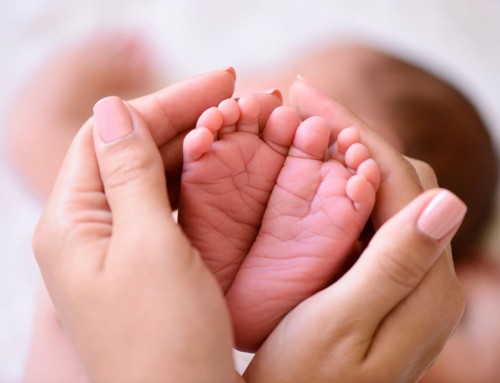Powerful woman! You should be having sex whenever you feel safe and sexy and your partner desires the same!
- Having an orgasm is such a personal experience. Some women experience orgasm as a rush of heat and pleasure. Others find the experience explosive. While others burst into laughter.
- Orgasms are best reached when we feel safe and at ease with our partners.
- Women are dynamic when it comes to finding pleasure. Our erogenous zones are elusive and often become more exposed as we feel more relaxed and aroused.
- Most women require clitoral stimulation to reach orgasm. What is important to remember is that the clitoris is actually a very large section of tissue. Generally, we think of the clit (that tiny little nub beneath the front of our labia), but actually, clitoral tissue is like a glacier. The clitoris is just the top. Clitoral tissue actually extends like a wishbone shape along the labia minora and inside of the vaginal. As we become aroused, this tissue becomes swollen with blood and thus more sensitive to touch.
- For some women, this swelling happens quite easily (lucky!), but for most women, this takes safe and sexy foreplay.
- Many people have heard of the “G” spot. This is actually tissue along the front of the vagina. Just as the clitoral tissue becomes flush and swollen as we become aroused, so does this long, tube-like tissue along the front (anterior) wall of the vagina. Having an orgasm requires (for most) a sense of relaxation and security. Some women may experience a gush of fluid, while others notice pulsation a inside and around their vagina.
- .. When we have orgasms, we secrete the hormone Oxytocin (also called the L-O-V-E hormone ☺️). This is the same hormone we secrete when we are in labor. Some women, when pregnant, may experience cramping, contractions and sometimes some spotting. Not to worry! Relax, drink some water, pee, and relax. Give your body a chance to relax. If you are bleeding more than a little spotting, contracting more consistently or the baby isn’t moving, call. If not, snuggle your partner (or your toy ☺️) and bask in the pleasure!
- It can sometimes be difficult to pinpoint the cause of swelling and burning after intercourse. An allergic reaction could be a possibility. I would look at what you use during intercourse – latex condoms? Lubricants? Spermicide? Any one of these things can cause an allergic reaction. A semen allergy, while not common, could also be a possibility. One way to evaluate this would be to see if the symptoms fail to occur when you have sex with a condom, as a condom would prevent exposure to the semen and therefore would prevent the allergic reaction.
- Local tissue trauma can also cause these symptoms. Rougher sex or sex without adequate lubrication may result in some minor trauma to vaginal and vulvar tissue. This can result in swelling and burning which typically resolves over the next few days. If this seems to be the issue, I would recommend an increase in foreplay prior to intercourse, and/or use of lubricants to decrease friction during intercourse.
- There are a number of ways to treat the sensation of vaginal dryness.
- Vaginal dryness is typically caused by thinning and drying of the tissue on the vaginal walls during times when your body has less estrogen. This decrease in estrogen can occur after having a baby (especially if you are breastfeeding), after having your ovaries surgically taken out, or while approaching and going through menopause. While vaginal dryness on its own can be bothersome, one of the biggest complaints women have is pain with intercourse.
- Nonprescription treatment options include vaginal moisturizers (i.e. Replens, Lubrigyn) and vaginal lubricants. Moisturizers are more of a regularly-applied maintenance therapy while lubricants are typically only helpful during intercourse. Water based lubricants can result in a burning sensation when applied to postmenopausal tissue, so it may be worth looking for silicone based lubes (it should say what type of lubricant it is on the bottle). Please know though that silicone lubes can degrade silicone based sex toys, may stain fabrics, and are not safe in the shower because they make the floor very slippery.
- Prescription treatment options include vaginal estrogen cream and oral medication. Lastly there is something call the MonaLisa touch, which is a CO2 laser treatment of the vaginal tissue that has shown some promise in long term treatment of vulvovaginal atrophy. If you are interested in any of these options, I would recommend an appointment with a physician for further discussion of pros and cons of each form of treatment. Importantly, every woman is different, so it can take time to figure out what treatment option is right for you.
- Being intimate with your partner during pregnancy can be so special. I’ll bring up that LOVE hormone again, Oxytocin. When we secrete oxytocin, we feel at ease, relaxed and hopefully within a rush of pleasure ☺️. This hormone (and the feelings that come along with it) spreads throughout the body. In my hippie, midwife mind, (??) how beautiful to experience and share love and pleasure with your beloved when you are creating a new person! It’s like you’re bathing your baby (and yourself) in LOVE! So lovely. ☺️
- According to a Cochrane review (a very reliable research database) evaluating sex (coitus) as a method of labor induction, the one finding that was found to be most reliable was that having sex during pregnancy had no influence on maternal or baby outcomes (basically, sex is safe).
- However, it’s important to remember that Oxytocin can cause women to have contractions and cramping, and sometimes even spotting. This is why people believe that having sex (especially with orgasm) can help women go into labor. The truth is, unless your body is truly ready to go into labor, it’s not likely that you will go into labor just by having sex.
- There are some times during pregnancy that having sex is NOT considered SAFE. One example would be if you have a history of preterm labor, preterm contractions and/or a shortened cervix. Although sex is considered safe for normal, healthy pregnancies, it is always a good idea to consult your provider about intercourse, especially if anything ‘abnormal’ has been noted about your pregnancy.
- Remember, spotting, cramping and light Braxton Hicks contractions are common after sex. Don’t be alarmed! Make sure you hydrate, pee, eat and relax. Make sure the spotting doesn’t become a period and the cramping slowly goes away. Keep an eye on your baby’s movements. If you call with concern about anything, be sure to mention your recent intercourse, as that may be an easy explanation for your symptoms. ☺️
- There are many things that can cause low libido, and it’s a problem that many women suffer. I can say with certainty, you are not alone!
- When trying to figure out what’s causing your decrease in desire, you must ask yourself some questions. First, take a look at what’s going on in your life. Are you a new mom, suffering from the effects of sleep deprivation and demands of breastfeeding? Do you have work stresses that you bring home with you? Do you have concerns about your physical appearance that make it hard for you to be intimate? Are you and your partner having any turmoil in your relationship? Anything that affects your ability to relax and be intimate with your partner will affect your desire.
- Second, look at at your physical wellbeing. Think about if you have had any changes in your medical history, or experienced any physical symptoms that make sex less enjoyable. Do you have any new medical or psychological diagnoses? Have you started any new medications? Do you have pain with sex, vaginal dryness, and/or incontinence? Sometimes something as simple as having a doctor adjust your blood pressure medication can affect desire. Or, if you are embarrassed to have sex because of vaginal dryness or leaking urine, your desire to have sex will certainly decrease.
- Everything I have listed (and more!) can impact your libido and make sex less desirable. For management of low libido, you need to look at the cause. Sometimes all you need is an adjustment in your daily or weekly activities – exercise more to improve your self image and energy, plan a date night once every few weeks to improve intimacy with your partner, or increase stress-reducing activities. Other times, counseling may help. This could be either one-on-one counseling with a therapist, couples counseling, or sex therapy to identify any relationship issues that may be impacting your desire to be intimate.
- If you find the cause may be a medical or physical issue, you may want to talk to your doctor. Sometimes adjusting medications can result in an improvement in symptoms. Or, getting better control of a psychological or medical issue may help you feel better physically, and with time result in more desire for sex. If the issue is pain with intercourse, vaginal dryness, or incontinence, evaluation and treatment of those issues may help you enjoy sex more, and as a result desire sex more.
- If none of the above suggestions work, there are some medications or hormone formulations that can be used to try and improve libido. Scientific data on the effectiveness of these treatments may vary depending on what you try, and what’s appropriate for you as an individual will depend on your medical history and whether you are pre or postmenopausal. The important thing to know is that there unfortunately isn’t a magic pill to cure low libido, so it may take some trial and error to find the right treatment for you.
- The bottom line is this – women are quite complex, and any disruption in our personal lives can easily spill over to affect our libido. It doesn’t mean there is something wrong with you – this problem affects women of all ages, and can have many causes. It’s just a matter of looking at your individual situation and identifying possible barriers that may be affecting your desire.


 Online Scheduling Request
Online Scheduling Request 






